Macon, GA Pollen and Allergy Report for Summer 2023
Pollen Allergy Trends in Macon, GA
When is pollen lowest in Macon, GA?

October
Lowest month total PPM
Avg. PPM
When is pollen highest in Macon, GA?

April
Highest month total PPM
Avg. PPM
How does pollen in Macon, GA compare to Georgia?
Macon has a higher average PPM than the state of Georgia.
Macon yearly avg PPM:
Georgia yearly avg PPM:
How does pollen in Macon, GA compare to the USA?
Macon has a higher average PPM than the USA.
Macon yearly avg PPM:
USA yearly avg PPM:
Is pollen worse this year in Macon, GA?
Spring 2023 was better than spring 2022.
Spring 2023 PPM:
Spring 2022 PPM:
Average PPM in Macon, GA
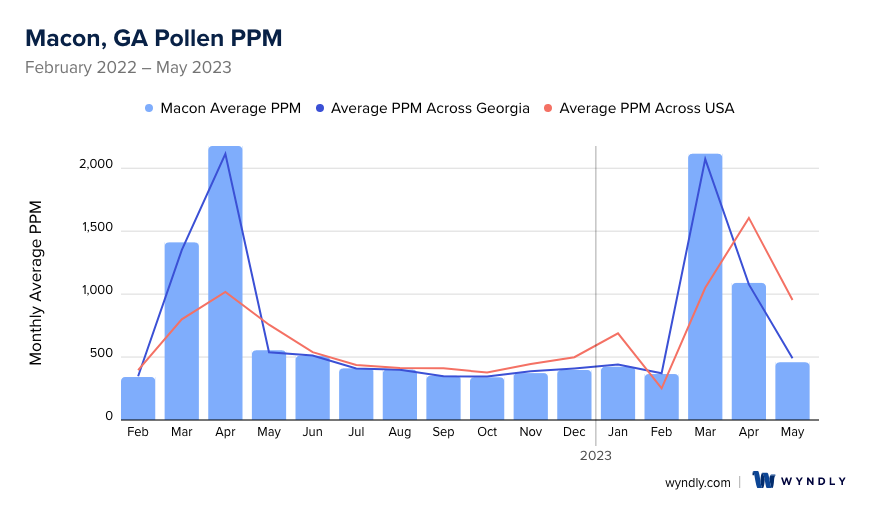
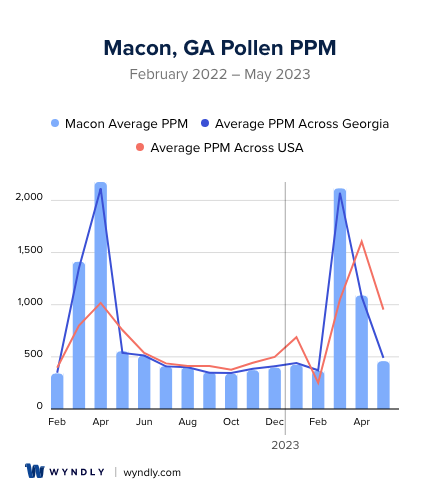
Macon, GA Pollen and Allergy Breakdown by Month
Grass
When is grass pollen highest in Macon, GA?
April has the highest grass pollen in Macon, GA with an average PPM of
When is grass pollen lowest in Macon, GA?
November has the lowest grass pollen in Macon, GA with an average PPM of
Tree
When is tree pollen highest in Macon, GA?
March has the highest tree pollen in Macon, GA with an average PPM of
When is tree pollen lowest in Macon, GA?
October has the lowest tree pollen in Macon, GA with an average PPM of
Weed
When is weed pollen highest in Macon, GA?
April has the highest weed pollen in Macon, GA with an average PPM of
When is weed pollen lowest in Macon, GA?
February has the lowest weed pollen in Macon, GA with an average PPM of
Macon, GA Pollen Monthly Breakdown by Pollen Type
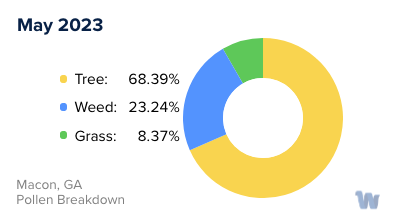
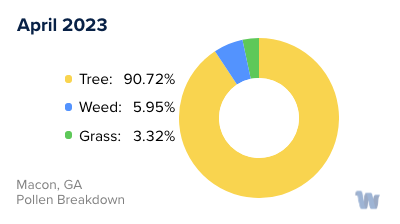
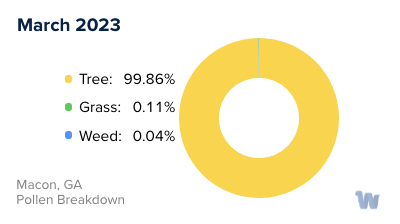
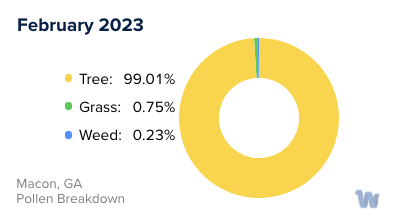
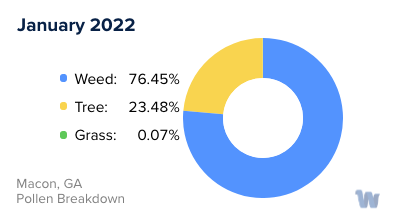
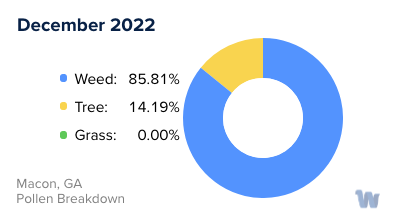
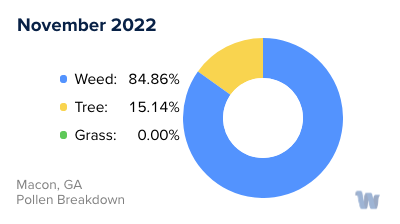
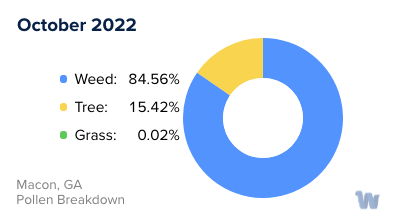
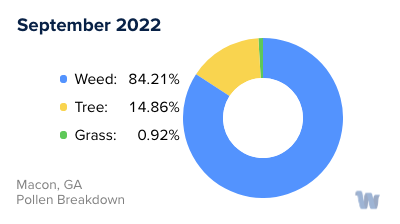
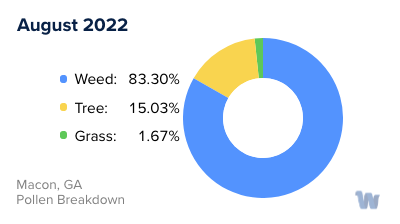
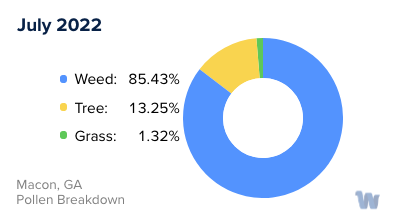
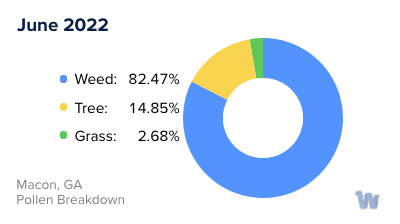
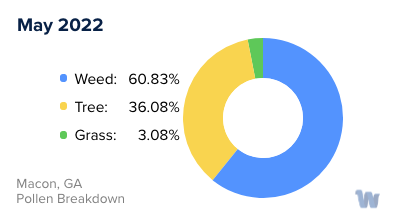
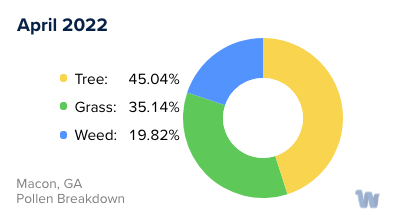
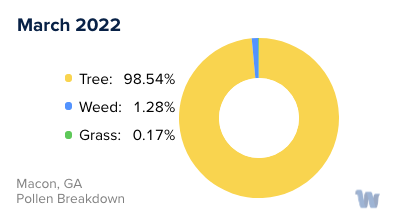

Pollen and Hay Fever in Macon, GA
Pollen allergies, commonly known as hay fever, are a frequent concern for residents in Macon, Georgia. This condition manifests when an individual's immune system overreacts to airborne pollen particles, leading to symptoms like runny nose, itchy eyes, and sneezing. The types of pollen and the seasons in which they peak in Macon can significantly affect local residents' quality of life.
In Macon, the primary sources of pollen are trees, grasses, and weeds. Each type of pollen has its own unique season, meaning that residents could potentially experience symptoms at various times throughout the year.
Tree pollen is the earliest to hit the air, typically peaking in the spring months. The primary contributors are oak, pine, and hickory trees, all of which are abundant in Georgia's natural landscapes. These trees release vast quantities of pollen, painting a yellow dust across cars and outdoor furniture and causing discomfort for allergy sufferers.
Grass pollen typically follows the tree pollen season and peaks in late spring and early summer. In Macon, the most common types of grasses producing allergenic pollen include Bermuda grass and ryegrass. These grasses are common in lawns and fields, making it difficult for residents to avoid exposure.
Lastly, weed pollen rounds out the year, peaking in late summer and fall. Ragweed is the most common culprit here. Despite its small size, a single ragweed plant can produce up to a billion grains of pollen per season, which can travel vast distances on the wind.
While pollen allergies can be challenging to navigate, understanding the types of pollen and their respective seasons can help individuals anticipate and prepare for these periods. Keep in mind that weather patterns can influence pollen levels, with warm, dry, and windy days typically seeing higher pollen counts. By staying informed, Macon residents can take the first steps toward mitigating the impact of pollen allergies on their daily lives.

